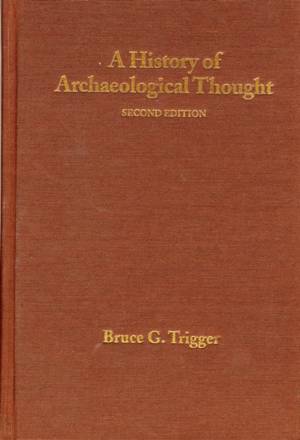
Je cadeautjes zeker op tijd in huis hebben voor de feestdagen? Kom langs in onze winkels en vind het perfecte geschenk!
- Afhalen na 1 uur in een winkel met voorraad
- Gratis thuislevering in België vanaf € 30
- Ruim aanbod met 7 miljoen producten
Je cadeautjes zeker op tijd in huis hebben voor de feestdagen? Kom langs in onze winkels en vind het perfecte geschenk!
- Afhalen na 1 uur in een winkel met voorraad
- Gratis thuislevering in België vanaf € 30
- Ruim aanbod met 7 miljoen producten
Zoeken
€ 191,95
+ 383 punten
Omschrijving
In its original edition, Bruce Trigger's book was the first ever to examine the history of archaeological thought from medieval times to the present in world-wide perspective. Now, in this new edition, he both updates the original work and introduces new archaeological perspectives and concerns. At once stimulating and even-handed, it places the development of archaeological thought and theory throughout within a broad social and intellectual framework. The successive but interacting trends apparent in archaeological thought are defined and the author seeks to determine the extent to which these trends were a reflection of the personal and collective interests of archaeologists as these relate - in the West at least - to the fluctuating fortunes of the middle classes. While subjective influences have been powerful, Professor Trigger argues that the gradual accumulation of archaeological data has exercised a growing constraint on interpretation. In turn, this has increased the objectivity of archaeological research and enhanced its value for understanding the entire span of human history and the human condition in general.
Specificaties
Betrokkenen
- Auteur(s):
- Uitgeverij:
Inhoud
- Aantal bladzijden:
- 732
- Taal:
- Engels
Eigenschappen
- Productcode (EAN):
- 9780521840767
- Verschijningsdatum:
- 18/09/2006
- Uitvoering:
- Hardcover
- Formaat:
- Genaaid
- Afmetingen:
- 152 mm x 229 mm
- Gewicht:
- 1233 g

Alleen bij Standaard Boekhandel
+ 383 punten op je klantenkaart van Standaard Boekhandel
Beoordelingen
We publiceren alleen reviews die voldoen aan de voorwaarden voor reviews. Bekijk onze voorwaarden voor reviews.









